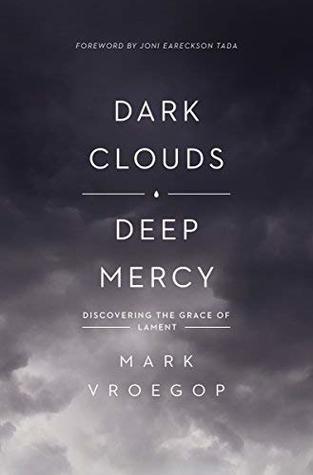More on this book
Community
Kindle Notes & Highlights
by
Mark Vroegop
Read between
July 6 - August 5, 2021
Lament is how you live between the poles of a hard life and trusting in God’s sovereignty.
Lament is the honest cry of a hurting heart wrestling with the paradox of pain and the promise of God’s goodness.
“It is precisely out of trust that God is sovereign that the psalmist repeatedly brings laments and petitions to the Lord. . . . If the psalmists had already decided the verdict—that God is indeed unfaithful—they would not continue to offer their complaint.”
Lament typically asks at least two questions: (1) “Where are you, God?” (2) “If you love me, why is this happening?”5
One out of three psalms is in a minor key. Just think about that! A third of the official songbook of Israel wrestles with pain.
Despair lives under the hopeless resignation that God doesn’t care, he doesn’t hear, and nothing is ever going to change. People who believe this stop praying. They give up.
It is better to ask them than not to ask them, because asking them sharpens the issue and pushes us toward the right, positive response. Alexander Maclaren writes, “Doubts are better put into plain speech than lying diffused and darkening, like poisonous mists, in [the] heart. A thought, be it good or bad, can be dealt with when it is made articulate.”10
It takes faith to lay our painful questions before the Lord.
It takes faith to pray when you are in pain.
In other words, the Bible is full of complaints. And apparently they aren’t sinful. In fact, they were set to music as an entire congregation sang their frustration.
The psalms of lament open us to the greatness of a God who not only can hear, but also can handle our pain, our self-pity, our blame, and our fear, who can respond to our anger, our disillusionment in the midst of oppression and persecution, under the boot of tyranny and our sense of God-forsakenness in the face of life’s most profound alienations and exiles.
We pray differently when we’re hurting and desperate. I’m sure you know what I’m talking about. Pain has a way of awakening us to our need for God’s help. It shines a spotlight on our powerlessness to control everything.
You’ll likely be able to ask God for help with a different level of faith than your hurting friend can muster. The boldness of your request and the confidence in your approach to the throne of grace can be a great help. You can pray with a firm belief that creates stronger faith in others. If you don’t know what to pray, consider appealing to God through the words of a lament like Psalm 13 or 22. As you echo the boldness of the psalm, it can beget boldness in a hurting friend.
Trust is believing what you know to be true even though the facts of suffering might call that belief into question.
Every Christian has a record of God’s steadfast love. Therefore, we should remind ourselves about God’s worthiness to be trusted.
Suffering does not mean that God has forgotten or rejected his people.
Choosing to trust through lament requires that we rejoice without knowing how all the dots connect.
“Lord, I’m trusting you to keep me trusting.” And
“I shall look at the world through tears. Perhaps I shall see things that dry-eyed I could not see.”
The good news is that if you’re at the bottom, God can meet you there.
“Faith is a footbridge that you don’t know will hold you up over the chasm until you’re forced to walk out onto it.”
Lamentations shows us that God’s sovereignty and his reign are not negated by suffering. God is still in control, even through loss.
Every sorrow, every tear, and every loss gives evidence of the brokenness caused by sin. Something is terribly wrong with our culture and inside of us.
Too many people think real worship only means an upbeat and happy demeanor. But grief-filled prayers of pain while seeking God are among the deepest expressions of God-centered worship.
“What I need to hear from you is that you recognize how painful it is. I need to hear from you that you are with me in my desperation. To comfort me, you have to come close. Come sit beside me on my mourning bench.”4
A crowd can be a lonely place when your heart is heavy.
Death is the Christian’s enemy (1 Cor. 15:26).


